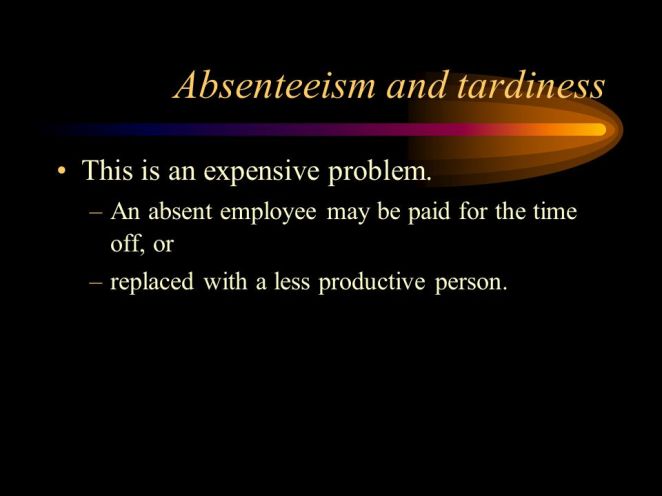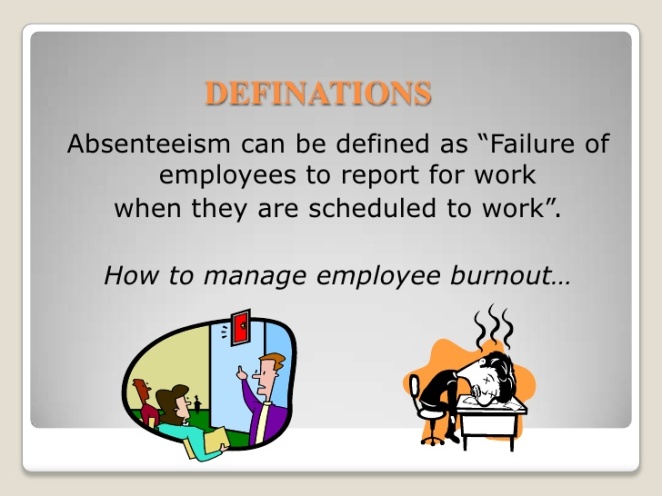Rupa is so worried …why?

It was 10.30 am on Monday morning and the email from Sagar, the Senior HR Manager popped up in her inbox. Without even opening it Rupa had a precise idea what it was all about.
She had been absent from work quite frequently in the last six months. In her heart Rupa knew that she was no longer motivated for the current role in which she was working. She felt that her work was not given due appreciation in the present company.
So she had started looking for greener pastures. At the same time she knew she could not resign without getting a better opportunity in some other organization.
Earlier Sagar had verbally reprimanded her for taking unauthorized leaves but she had not paid any heed. She remembered that day when he had called her to his cabin.

Sagar had said, “Rupa, I have called you here to discuss a serious concern. You have been absent for three to four days every month during the last three months. And you have never bothered to inform your superior. This is unacceptable behavior. Please see to it that you follow the company policy regarding leaves.”
This time she had to answer the show cause email. Sagar demanded an explanation for the absences failing to provide which could lead to her termination.
The above is a typical scenario for a HR manager.
Absenteeism means either habitual evasion of work, or willful absence as in a strike action. It does not include involuntary or occasional absence due to valid causes, or reasons beyond one’s control, such as accidents or sickness.
Employee absenteeism is a big factor which can gravely hurt productivity in any company. Some tips to curb absenteeism in the workplace may include the following –
- There should be a written attendance policy which clearly states the rules and regulations regarding attendance which the employees should adhere by. This should include the meaning of tardiness and what constitutes excessive absenteeism. For example – Tardiness is when an employee arrives to work thirty minutes late. Excessive absenteeism is when an employee has been absent on six or more days in a six month period.
- As part of the new employee orientation program this written attendance policy should be shared and expectations regarding attendance set. Employees should know whom to contact in case they will be taking a day off.
- They should also understand what documentation, if any, they will be required to provide to the employer upon return (e.g., a doctor’s note).Without proper guidelines regarding office attendance, employees would struggle to live up to the standards for efficient productivity. Also it would be problematic for supervisors to impose punishments in case of lax attendance. The employee appraisal form also should have a dimension for attendance.
- Every worker wants a reward and employers can attach incentives to perfect attendance as a measure to encourage presence and competition for the incentives. Some incentives can include –
- Offering bonuses such as additional paid time off to employees who have perfect attendance.
- Using attendance records as criteria for promotion.
- Attendance Awards celebrating employees with perfect attendance during special events.
8.Flexible work scheduling can also go a long way in curbing absenteeism.

Comments
Post a Comment